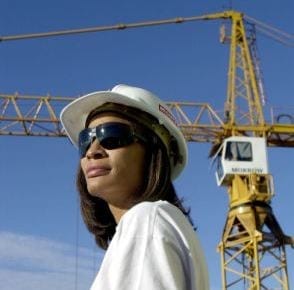
The inaugural Africa Inclusive Infrastructure Forum will address the question of how to strengthen women’s economic inclusivity in African Infrastructure
“Although, we have always designed projects with users in mind, it is only now that we are re-focusing our approach to understand the different needs that women have, stemming from cultural pressure, gender role norms, resources and rights.
“The Africa Inclusive Infrastructure Forum will help us to systematically examine how we involve women in transport projects at all levels,” says Michelle Tutt, Senior Transport Engineer, AfDB. “It’s crucial to implement a gender mainstreamed approach at the project level, but also in our national strategic plans, sensitising our politicians and governments. “Africa will benefit exponentially when women are no longer seen as passive beneficiaries but are integrated into every phase of infrastructure roll out including design phase, capacity building, and forming part of transport programme teams as contractors, engineers and decision-makers.”




